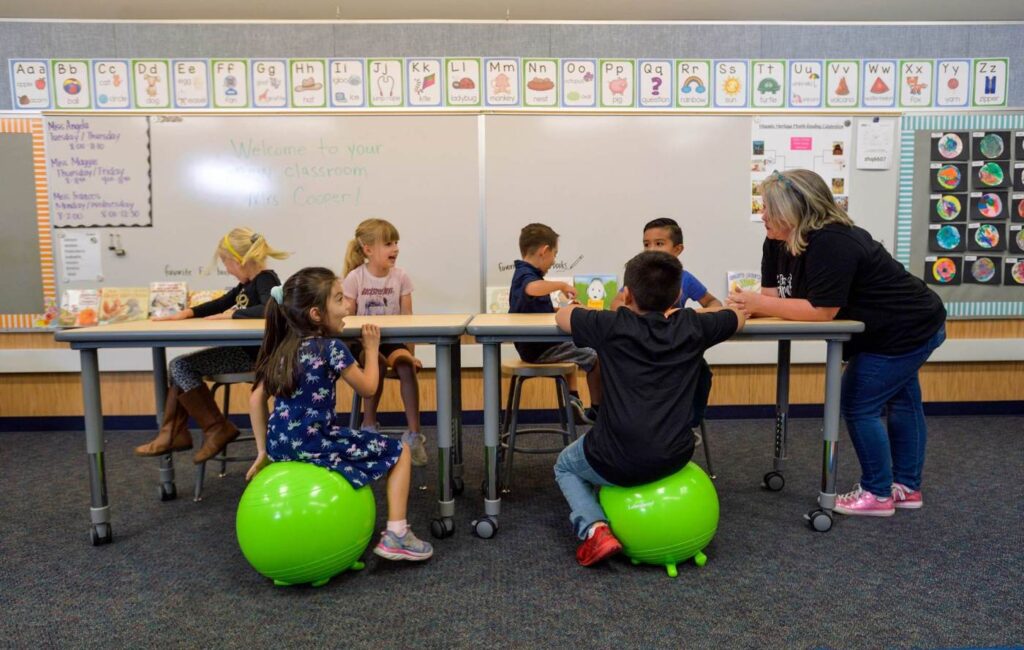
News stories and studies have documented the ill effects of the COVID-19 shutdowns on schoolchildren in California and across the country, yet the public-school establishment’s recent failures have resulted in some encouraging news. The pandemic has opened the eyes of many parents, as support for educational competition has reached a record high.
One Yale University study found that school closures dramatically increased inequality “by severely impairing the academic progress of children from low-income neighborhoods.” The U.S. Department of Education found that the stay-at-home orders severely harmed students’ mental health – and were devastating for children with disabilities.
Yet despite the difficulties faced by students, teachers’ unions and public school administrators largely resisted efforts to open schools in a timely manner. In March, the teachers’ union representing Los Angeles Unified School District voted overwhelmingly (91 percent) against re-opening the schools unless their tough demands were met.
Suffice it to say, but union demands in LA and elsewhere had little to do with the wellbeing of students, with some districts using the re-opening as a means to leverage the state for money (sometimes for programs unrelated to the pandemic). By contrast, public charter schools and private schools typically tried to return to in-class teaching as soon as possible.
We’re now seeing a growing backlash by parents. In Virginia, Republican Glenn Youngkin won the governor’s race by tapping into parents’ frustration with the public schools Youngkin’s message resonated with suburban voters who had been defecting from the GOP. His victory will serve as a model for Republicans nationwide.
Although California’s electorate is far more Democratic than Virginia’s, Republicans here see an opening. They are trying to “capitalize on a growing coalition of parents who are resentful of Democratic leaders’ education policies – including the mandates around school shutdowns, masking, and a new law that requires every high school student to take an ethnic studies class,” the Sacramento Bee reported.
The evidence of parental frustration is more than anecdotal. Although California’s union-dominated Legislature continues to limit the growth of charter schools, 18 other states have expanded some type of school-choice programs, according to a new report from the conservative American Enterprise Institute.
We relish AEI’s conclusion: “Most remarkably, the success of school choice this year has been attributable less to its advocates than to its worst enemies: teachers’ unions. Through their response to the pandemic, unions overplayed their hand and exposed the inherent failures of the one-size-fits-all government school system.”
Related Articles
State’s leaders must take the crime wave seriously
Implications of Fed policy for the country and for the Democratic Party
The high cost of chasing made-up targets
Bandsplaining my way through the podcast pandemic
California shouldn’t follow Texas’ flawed lead on thwarting constitutional rights
Advocates for educational competition have long faced a public-perception quandary. While most people understand that public schools often perform poorly, they tend to appreciate their local schools. Yet the pandemic changed that dynamic, as parents watched their own kids struggle amid their schools’ incompetent distance-learning programs and their re-opening foot-dragging.
To make matters worse, some school boards showed little sympathy toward parents who showed up at board meetings to complain about the situation, which reinforced parents’ anger. Trustees from one Northern California school board resigned after being caught on video (they didn’t realize it was public) mocking parents.
This Editorial Board has long supported a robust system of school choice, not only for financial reasons but because competition improves the quality of any service. The public schools’ dismal response to the pandemic has made that argument more persuasively than ever.
